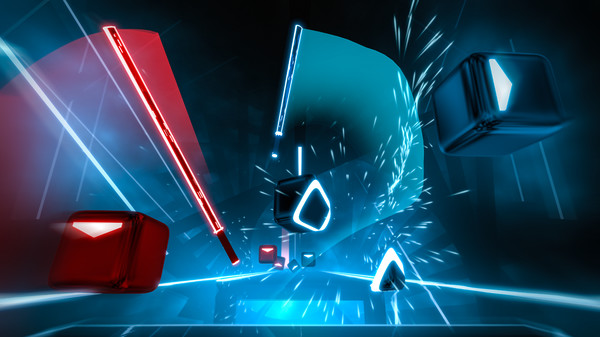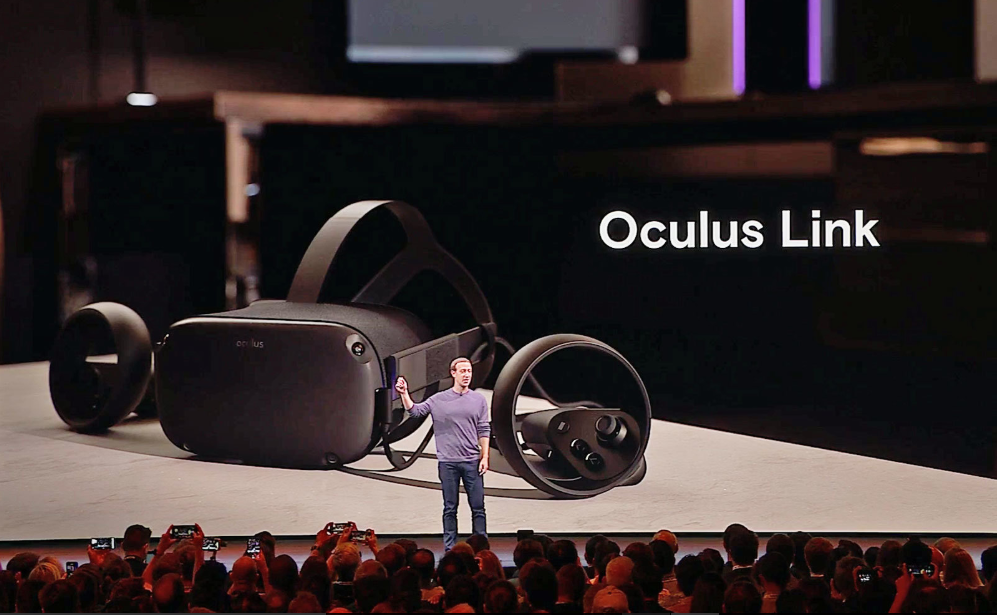Virtual Reality: What to Expect in 2020
Four years ago, virtual reality was billed as the next big computing revolution. Virtual reality and by extension, augmented reality, has evolved over the subsequent years and by 2019, it has settled into something of a niche for avid gamers looking for something extra. There have been other successes on the enterprise front, too.
2019 saw the emergence of new virtual reality headsets, a small boom in mobile VR and subsequent decline as well as the arrival and primacy of the standalone virtual reality headsets with the Oculus Quest and subsequent Oculus Link connection that now creates a “Quest PC” anchoring the growth of the industry. However, the prediction that VR would explode into a mainstream technology from a niche experience failed to materialize. The growth of VR will be gradual and long-going.
Still Waiting for the Killer VR App
Pundits have opined that virtual reality will only take off the day the industry will produce the “killer app” that will “organically” bring millions or billions of users into virtual reality. While there have been some app successes in 2019 such as Beat Saber and Superhot VR, we are still a long way from the long-awaited killer VR app.

The growth of virtual reality has also been hampered by lack of affordable and high-performance hardware. There are some good and affordable options such as Oculus Quest and the Oculus Rift S which have recorded moderate sales but we are yet to see an avalanche of users acquiring VR hardware.
VR Hardware in 2020
On the whole, however, virtual reality hardware options have proven to be too costly for the average user and many of these also need additional expensive hardware such as a PS4 console or a gaming PC.
For VR enthusiasts, the Oculus headset offers some hope. It is a standalone headset that doesn’t have to be tethered to a PC to work. Users who need access to the Rift library on their Quest headset can also opt for the Oculus Link connection.

In spite of a few successes here and there, virtual reality is yet to live to the hype.
2020 could be another average year or it could be the year that things really shape up in the virtual reality sphere. The upcoming Half-Life: Alyx game by Valve is the kind of virtual reality exclusive that could draw a flood of users into virtual reality. The game will only be available on virtual reality which means avid fans will have to acquire VR hardware to enjoy it. By opting on a VR-exclusive without an option for the traditional monitor gaming, Valve will be betting big on virtual reality and certainly leaving a lot of money on the table. Should Half-Life: Alyx prove to be a success in 2020, it could also signal to the developers developing cold feet about virtual reality that the medium already pays.
As far as VR hardware goes, 2019 was the year of Oculus Quest. However, 2020 could shape up into the year of the Valve Index headset although it is still billed as the hardware option for the hardcore virtual reality enthusiasts due to its mad specs.
Hand Tracking and Oculus Link for Quest Headsets
For Quest users, 2020 will offer a great opportunity to fully exploit the capabilities of the Oculus Link feature. It is currently available in beta, letting users use their Quest virtual reality headset as a conventional PC VR headset. Oculus is also in the process of testing hand tracking features which could offer users a deeper level of immersion. Until the addition of native hand tracking, users have had to rely on a controller that is strapped to the headset.
Hand tracking for Oculus Quest is still in its early days but so far, it looks promising as seen in the recent demo applications released by developers.
![]()
Quest unveiled the preview of hand tracking in early 2019. Expect this, along with Oculus Link, to improve in 2020 and for both of the features to come out of the beta phase and preview. For the end users, the features will significantly increase the library of games that can be played with Oculus Quest as well as the headset’s capabilities.
Currently, the hand tracking functionality is limited. With the release of the feature in preview, VR developers can already integrate it into their games and test it out. There are a number of developers who have already began experimenting with the feature and integrating it into their games and apps.
In 2020, Oculus Quest will remain as the most versatile virtual reality headset around and Facebook may be looking up to push its advantage by lowering the price over time through the year. The Quest headset is not the ideal VR device and it would be great to see Facebook reach great heights by coming up with a new high-end dedicated virtual reality headset.
Expect to see added functionality for the Oculus Quest headset in 2020.
Next-Generation Gaming Consoles
The year 2020 will also see the launch of the next-generation of gaming consoles: Xbox Series X and PlayStation 5. This could open new opportunities for virtual reality. Both of these will have considerably faster hardware than the Xbox One and PlayStation 4. The hardware improvements could be such as these gaming consoles could match some of the more powerful gaming PCs of today. They will also feature support for new capabilities such as ray tracing.
Half-Life: Alyx
The announcement of Half-Life: Alyx at the close of the year was one of the biggest virtual reality news. Avid fans have waited for this sequel for more than 12 years and the fact that it will be a VR-exclusive could be a major factor driving more gamers to virtual reality. There are already promising signs that this will be the case.
Half-Life: Alyx will take the format of the previous games where the story is built around physics-based puzzles along with dynamic shooting. The following Half-Life: Alyx trailer shows some of the gameplay of the game.
The game has been ported into virtual reality in a very meaningful way. Players are even able to grab headcrabs from their faces and throw them or dig through the shelves for the items and ammo. The listing of the game is already up on Steam and will be out in March this year.
Half-Life: Alyx won’t be on PlayStation VR yet but there are some exciting offerings coming to PSVR users in 2020 including Iron Man VR game set to launch on February 28, 2020 and which will be a PSVR-exclusive.
PSVR 2
Along with Iron Man VR, PlayStation VR users can also look forward to the platform’s next evolution in 2020. While Sony has been tightlipped regarding the arrival of PSVR 2 numerous patents and leaks point to a new generation device that will be wireless.
The PSVR 2 design, as seen in the patent, appears to be the same as that of the current generation of PSVR but it lacks any wires. Should it materialize, it will enable PSVR to compete with standalone virtual reality headsets such as Oculus Quest while also developing its own robust VR ecosystem.
2020 could be a breakthrough year for virtual reality or it could just be another year of constant evolution and gradual progression. The Quest updates, PSVR 2, Half-Life: Alyx as well as the fast-growing library of virtual reality games are likely to spell a promising 2020 for PSVR.
https://virtualrealitytimes.com/2020/01/02/virtual-reality-what-to-expect-in-2020/https://virtualrealitytimes.com/wp-content/uploads/2019/12/Half-Life-Alyx-subreddit-600x338.jpghttps://virtualrealitytimes.com/wp-content/uploads/2019/12/Half-Life-Alyx-subreddit-150x90.jpgTechnologyTechnology DiscussionFour years ago, virtual reality was billed as the next big computing revolution. Virtual reality and by extension, augmented reality, has evolved over the subsequent years and by 2019, it has settled into something of a niche for avid gamers looking for something extra. There have been other successes...Sam OchanjiSam Ochanji[email protected]EditorVirtual Reality Times - Metaverse & VR
